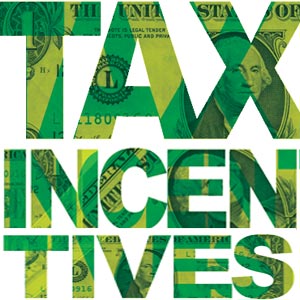We are like the vast majority of people in Memphis and Shelby County when it comes to the liberal tax freeze policy here.
Like most people, we are not suggesting that the PILOT (Payment-in-lieu-of taxes) program should be totally scrapped, but like most people, we are ready for them to be used more strategically rather than rubber stamped for essentially any company that can complete the forms right.
It seems like the agencies that dole out the tax waivers understand. The main purpose of the return on investment “analyses” is to shroud the profound impact on local government budgets with a barrage of scientific-sounding but arguable data about new taxes created by new jobs. The problem with these cost-benefit tests is that the numbers can be subjective, incomplete, and prone to manipulation, but despite that, they are important for any reasonable incentive program.
Of course, without any assurance that these tax freezes are given deliberately and surgically, the question remains: Are we spending too much per job or we setting our standards too low by giving incentives for every conceivable kind of job rather than jobs that truly position Memphis to compete in the knowledge economy.
Race to the Bottom
The program has gotten so unbalanced that today, a 15-year waiver of taxes was approved (meaning they are shifting from the companies to homeowners and small businesses) for a company like Wright Medical for changing its zip code in Shelby County. EDGE seems to understand how unseemly all of this is, because it so often provides all kinds of statistics in its news releases on its website except for the amount of waived taxes.
Here’s the thing: In less than six years, Memphis will celebrate the 200th anniversary of its founding, and if nothing changes, the community will limp into its third century on the bottom rungs of the important economic indicators and continuing to chase cheapness over quality. Of course, one of the reasons we can’t promise and deliver quality is that almost $100 million in city and county taxes is being waived yearly – which means there is less money to invest in quality of life strategies that would reposition Memphis and Shelby County strongly in the global economy in the first place.
Just think: if the amount of tax waivers was cut in half (or the terms are cut in half while lowering the maximum number of years), it would free up enough revenues to pay for a major quality investment program of almost $1 billion.
It could pay for new parks, it could pave streets, it could improve and activate the riverfront experience, it could give us the best libraries and community centers in the country, it could put GPS in every police car, it could give us the public transit system we need, and more. And there might still be almost enough left to build a new convention center.
Finding Our Balance
But we’ll never be able to consider the same kinds of bold investment programs that other cities have launched, because local governments today are merely trying to do their best in keeping up with less revenues because of declining property values and of the runaway tax freeze program.
Just as philosophers have said that life is about finding balance, so is smart economic development . If we have learned anything from our national economic policies, single-minded economic policies that benefit elites rather than the broad middle class ultimately undermine the economic growth that it professes to serve. More to the point, there is no evidence that cutting taxes ever works as an economic growth strategy. In fact, cities successful in the knowledge economy are not characterized by low taxes and trend more to high taxes.
Today, we lack balance in our PILOT program, and because of it, big corporations get forgiveness of their taxes while their tax burden is shifted to homeowners and small businesses and neighborhood-based business growth and entrepreneurs get lip service although they are keys to our economy, and most of all, it continues the downward spiral that has come to characterize our economy.
It’s a vicious cycle. Talented workers don’t come here because we don’t make the kinds of quality of life investments to attract them, we can’t make those kinds of quality of life investments because business taxes are being waived in huge numbers, and businesses ask for their taxes to be waived because they need offsetting benefits to compensate for lack of talent and the higher tax rates exacerbated by them not paying their taxes.
Finding Better Ways
As we have said before, we’ve been handing out tax freezes liberally for more than 30 years and our economic competitiveness now stands in the bottom rungs when major cities and MSAs are ranked. We need to start over and rethink why we waive more taxes than any community our size in the country and more than all the other large cities in Tennessee combined.
The big question that’s rarely discussed here is whether the tax waiver policy really works in the long-term. As Richard Florida has flatly stated: “There is virtually no association between economic development incentives and any measure of economic performance. We found no statistically significant association between economic development incentives per capita and average wages or incomes, none between incentives and college grads or knowledge workers, and none between incentives and the unemployment rate.”
While the research and academic literature is divided on incentives, studies do agree on three things:
1) With few exceptions, incentives will not effectively influence location decisions.
2) The truly important factors in location decisions by businesses are transportation, labor quality, and markets.
3) The best way for government to influence business location is to create and sustain quality communities.
Losing a Game of Chase
Studies also have shown that incentives have no significant impact on the economies of depressed communities like ours. In other words, the more that communities like ours try to play catch up with magic answers like PILOTs rather than the hard work of city-building, the more our community’s economy will languish.
Although it’s clear that incentives can’t mask long-term community deficiencies, the public sector continues to use and emphasize them because of the favorable publicity it provides for elected officials and economic development types.
Often the public realizes that something is wrong before the politicians they elect do. The public knows that something isn’t working, and they are asking for a balanced approach to business incentives. There is the tendency for the defenders of the PILOTs to talk over the voices of public concern, but the volume is growing louder and it’s hard to think of a better time to consider what a more balanced approach could be.
So, what would a smarter investment policy look like to us?
Next: Smarter Investment Policy




